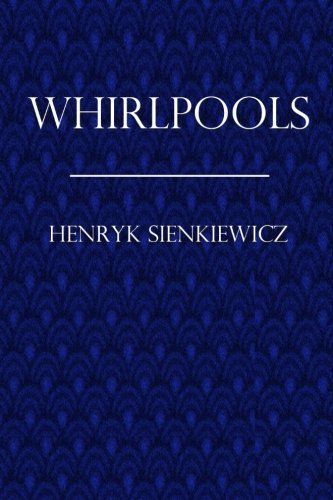
Whirlpools A Novel of Modern Poland
"THE work of Henryk Sienkiewicz naturally falls into two distinct classes: the purely historical novels which became so famous "Quo Vadis"; and the modern character analyses, among the most notable of which were "Without Dogma," "The Children of the Soil" and "The Family of Polanyetski." It was in commenting on "The Children of the Soil" that the late Charles Dudley Warner wrote: "This author I regard as the greatest of living novelists, both in range, in grasp of historical situations and in intuition and knowledge of human nature."Henryk Sienkiewicz's book, "Whirlpools," has been translated by Max A. Drezmal, deals exclusively with conditions of modern life in Poland. It is full of brilliant dialogue and keen dissection of human motives besides showing the author to be a very close observer of recent agrarian troubles and socialistic politics in Poland. The translation seems to be very well done. In connection with a socialist uprising, Sienkiewicz has portrayed the keen suffering and struggles of warring elements. Poland, "buried beneath the whirlpools of sand, possesses a bottomless depth of suffering," — also a loyalty which says: "We will set our teeth and will continue to suffer for Thee, and will not renounce Thee nor Hope." The story is told with the author's customary power and directness; the dialog is often brilliant, and a searching light is shed on the motives and actions of an interesting group of characters in the development of an absorbing love story to its inevitable conclusion.